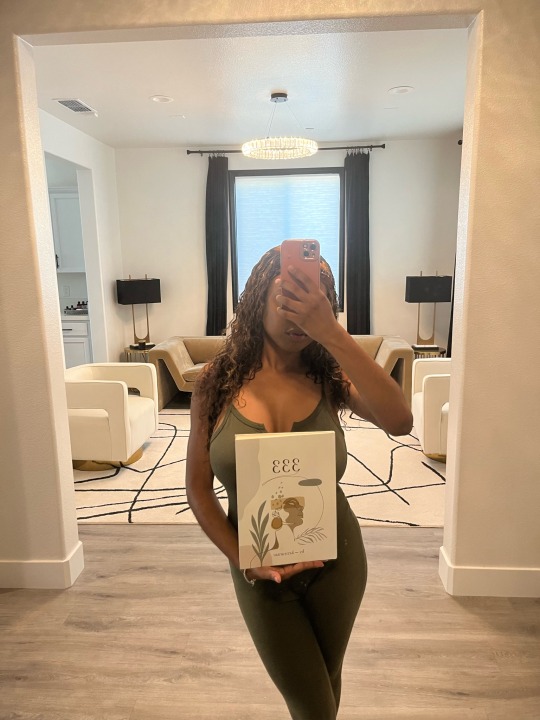#black female poets
Text
The Unofficial Black History Book
~~
Phillis Wheatley (1753-1784)
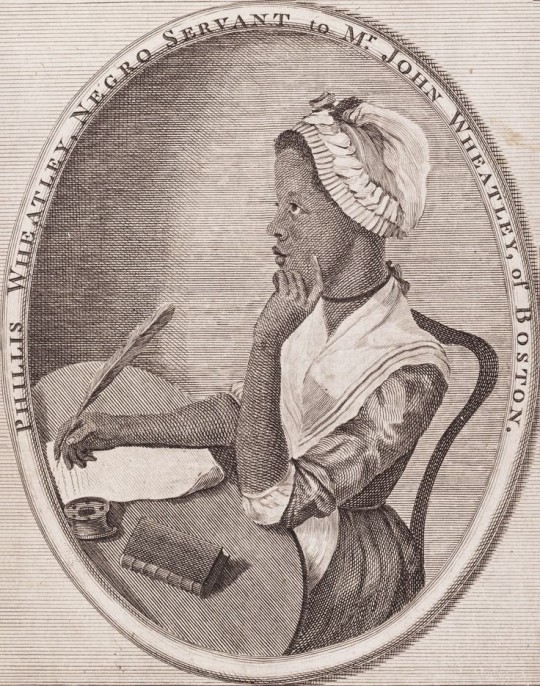
Imagine being the best-known and also the first African-American woman to publish a book of poetry at the age of 13, whilst being a slave.
This is her story.
Phillis Wheatley was the first African-American and second female to publish a book of poems. And she was also the youngest.
Phillis Wheatley was born on May 8th, 1753, in Gambia, West Africa. There's no record of her real birth name.
When she was no younger than seven, she was kidnapped by slave traders and brought to America in 1761. The slave traders renamed her 'Phillis' based on the slave ship she arrived on, 'The Phillis'
She was transported to the Boston docks with a shipment of "refugee" slaves who, because of their age or physical frailty, were unsuited for rigorous labor in the West Indian and Southern Colonies. They were the first ports of call after the Atlantic Crossing.
In August 1761, Susanna Wheatley, the wife of Boston tailor John Wheatley, was "in want of a domestic."
Susanna purchased "a slender, frail female child...for a trifle."
The captain of the slave ship believed that Phillis was terminally ill, and he wanted to make at least a small profit off of her before she died.
It's reported that a Wheatley relative surmised her to be "of slender frame and evidently suffering from a change of climate," "nearly naked, with no other covering than a quantity of dirty carpet about her," and "about seven years old...from the circumstances of shedding her front teeth."
When Phillis was sold to the Wheatley family, she adopted their last name and was taken under Susanna's wing as her domestic.
During her time serving the Wheatleys, which was about sixteen months, Susana discovered that Phillis had an extraordinary capacity to learn. The Wheatleys, including their son Nathaniel and their daughter Mary, taught her how to read and write after discovering her precociousness.
But this didn't excuse her from her duties as a house slave.
Phillis was soon immersed in the Bible, astronomy, geography, history, theology, British literature, and the Greek and Latin classics of Virgil, Ovid, Terence, and Homer. Inspired, she began writing poetry between the ages of 12 and 13.
At a time when African Americans were discouraged and intimidated from learning how to read and write, Phillis' life was an anomaly.
When she started to publish her poems, her fame, and talent soon spread across the Atlantic. With Susanna's support, Phillis started posting advertisements for subscribers for her first book of poems.
However, a scholar of Phillis's work, Sondra O'Neale, notes, "When the colonists were apparently unwilling to support literature by an African, she and the Wheatleys turned in frustration to London for a publisher."
In 1773, Phillis was in continuously poor health; she had chronic asthma. But she sets off for London with Nathaniel Wheatley, her master's son.
When she arrived in London, she was accepted and adored for both her poise and her literary work. And during her time there, she also received medical treatment for the ailments she was battling.
She met Selina Hastings, a friend of Susanna Wheatley and the Countess of Huntingdon. Eventually, Hastings funded the publication of Phillis's book. "Poems on Various Subjects, Religious and Moral." Was the first book of poetry published by an enslaved African American in the United States.
Her book includes many elegies as well as poems on Christian themes, even dealing with race, such as the often-anthologized "On being brought from Africa to America."
Phillis was also a strong supporter of America's fight for independence; she penned several of her poems in honor of George Washington, who was Commander of the Continental Army. She sent him one of her works that was written in 1775, and it eventually inspired an invitation to visit him in Cambridge, Massachusetts. In March 1776, she traveled to Washington.
Phillis eventually had to return to Boston to tend to Susanna Wheatley, who was gravely ill.
After the elder Wheatleys’ died, Phillis was left with nothing and had to support herself as a seamstress.
We don’t know exactly when she was freed by the Wheatleys, but some scholars suggest that she was freed between 1774 and 1778. And during that time, most of the Wheatley family had died.
Even with her literary popularity at its all-time high and being manumitted, freedom in 1774 Boston proved to be incredibly difficult.
Phillis was unable to secure funding for another publication or even sell her writing.
In 1778, she was married to a free African American man from Boston named John Peters. They had three children, but sadly, none of them survived infancy.
Their marriage proved to be a struggle due to the couple's battle with constant poverty. Phillis was then forced to find work as a maid in a boarding house, where she lived in squalid, horrifying conditions.
Even through all her misfortune, Phillis continued to write. But, with the growing tensions between the British and the Revolutionary War, she lost enthusiasm for her poems.
Although she continued to contact various publishers, she was unsuccessful in finding support for a second volume of poetry.
On December 5th, 1784, Phillis Wheatley died alone in a boarding house at 31 years old, without a penny to her name.
Many of her poems for her second volume disappeared and have never been recovered.
___
Next Chapter
The 16 Street Baptist Church Bombing
_____
My Resources
#the unofficial black history book#black history matters#black history 365#black history#black history is american history#black culture#black tumblr#black tumblr writers#black female writers#black female poets#know your history#learn your roots#black figures#herstory#history#black writblr#phillis wheatley#black activism#discrimination#writers on tumblr#black stories#black authors#women in history
7 notes
·
View notes
Text
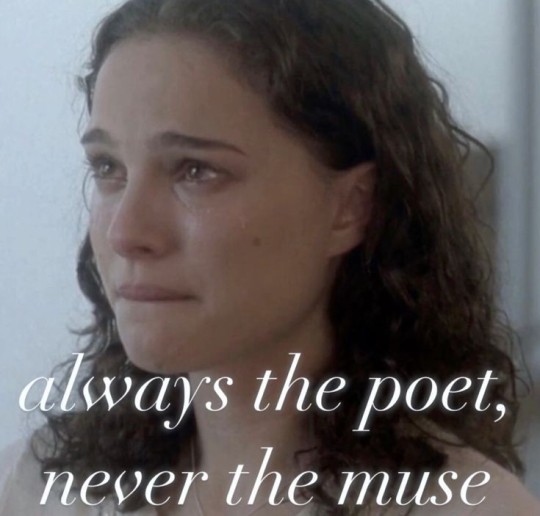
𝓛𝓲𝓽𝓮𝓻𝓪𝓵𝓵𝔂 𝓶𝓮 ⋆ ˚。⋆୨୧
(𝓷𝓸𝓽 𝓶𝓲𝓷𝓮)
#female manipulator#localy hated#girl poet#female rage#female insanity#female experience#the virgin suicides#sophia coppola#black swan#sadgirl#he hit me and it felt like a kiss#girl hysteria#girlcore#girl core#manic pixie dream girl#girl interrupted syndrome#sylvia plath#girlblogger interrupted#girlblog aesthetic#natalie portman#girl hood#girlhood#femcel#poets on tumblr#angel girl#just girly things#just girly thoughts#just girlboss things#let them eat cake#female hysteria
243 notes
·
View notes
Text
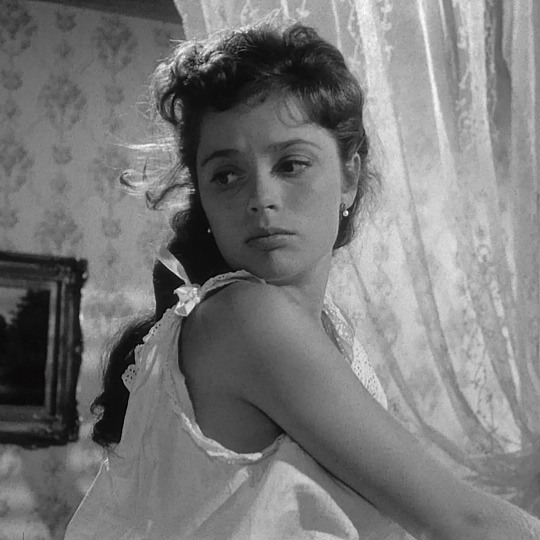



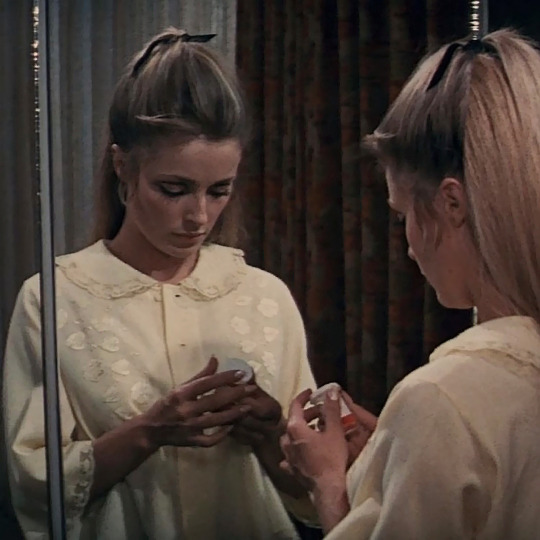
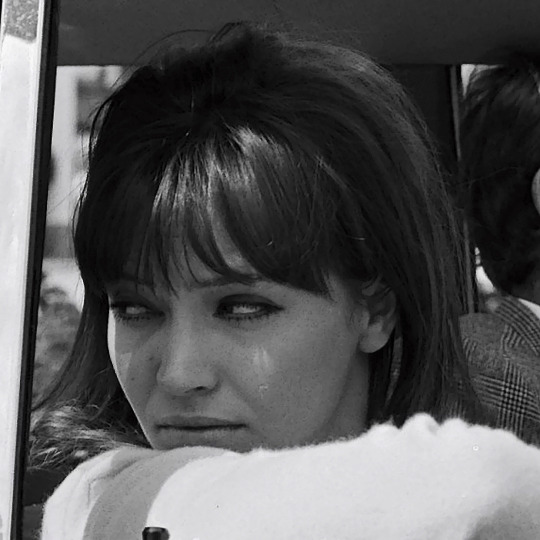


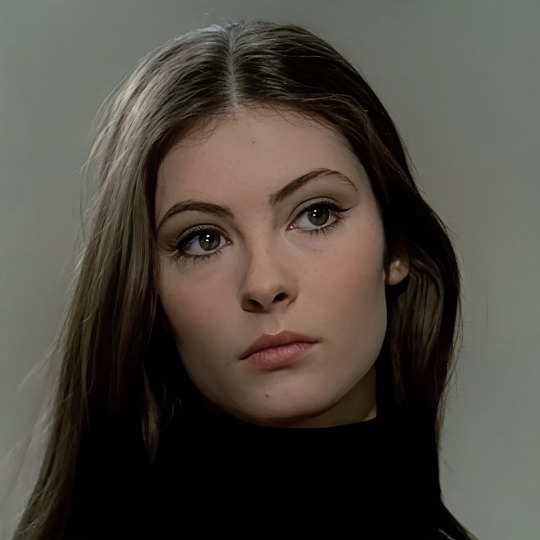
#random icons#harriet andersson#meryl streep#taylor russell#monica bellucci#sharon tate#anna karina#laura gemser#natalie portman#sonia petrova#smiles of a summer night#the deer hunter#dr bird's advice for sad poets#the appartment#valley of the dolls#black swan#nina sayers#la prima notte di quiete#actress icons#layouts#female icons#runway icons#supermodels icons#no psd icons#it girls#high fashion#site model#aesthetic#moodboard
185 notes
·
View notes
Text

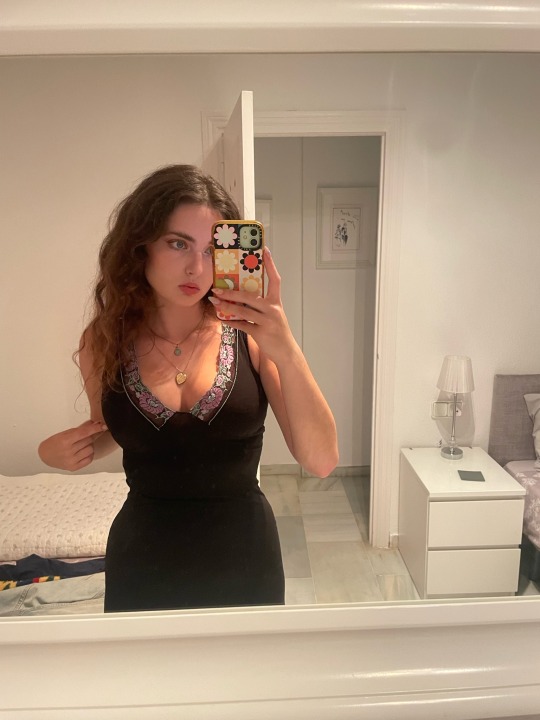
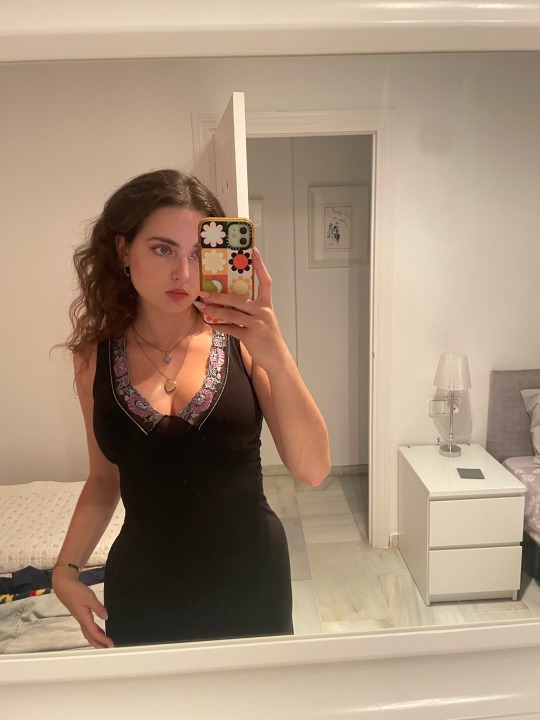
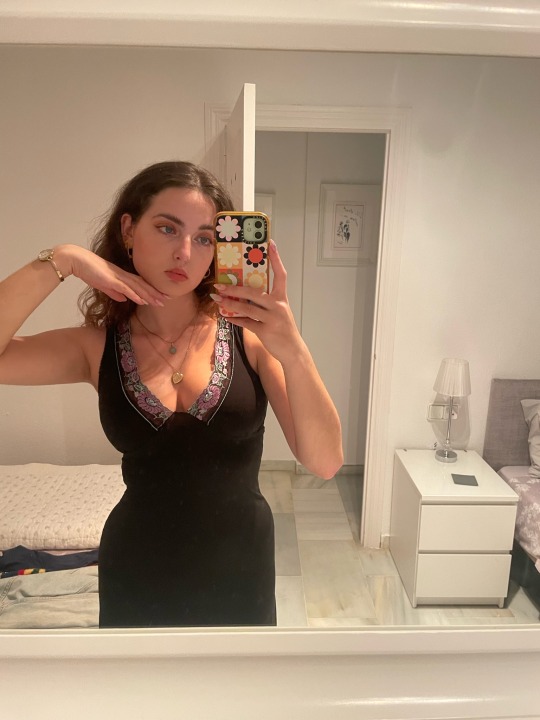
#female poets#female writers#poets on tumblr#poetscommunity#selfie#mirror selfie#ootd#outfit#little black dress
310 notes
·
View notes
Text
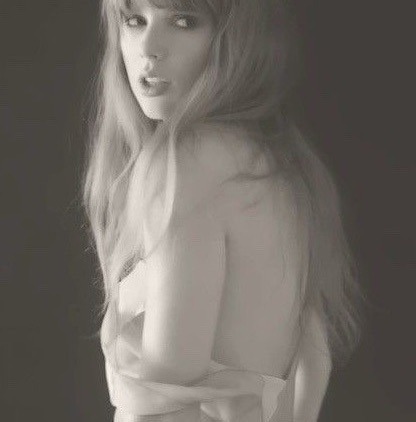

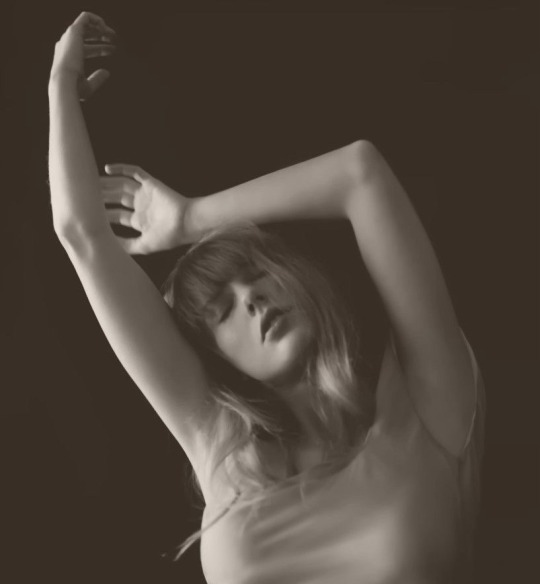
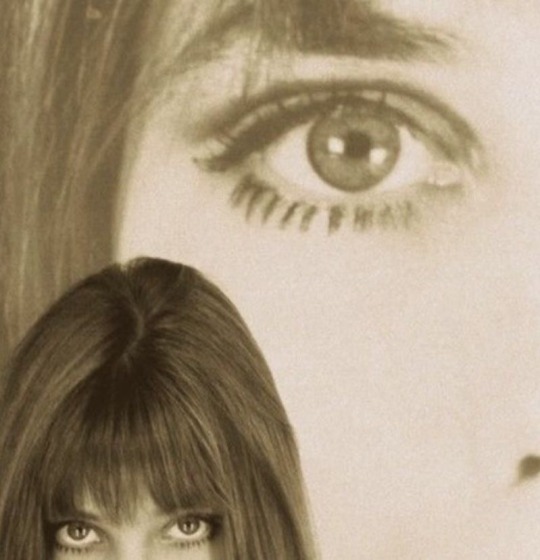





“casssandra climbs the palace steps unprompted. never before has death been greeted with so warm a kiss.”
#taylor swift#the tortured poets department#the tortured poets society#aaron dessner#jack antonoff#ttpd#ts ttpd#taylor swift moodboard#icons taylor swift#tumbrl#girls icons#speak now taylor’s version#taylornation#taylor swift icons#vintage#black moodboard#vintage moodboard#typography#messy moodboard#ttpd anthology#ttpd aesthetic#the prophecy#halsey#site girls icons#matty healy#the 1975#poetry#poems and poetry#female poets#ttpd edit
48 notes
·
View notes
Text

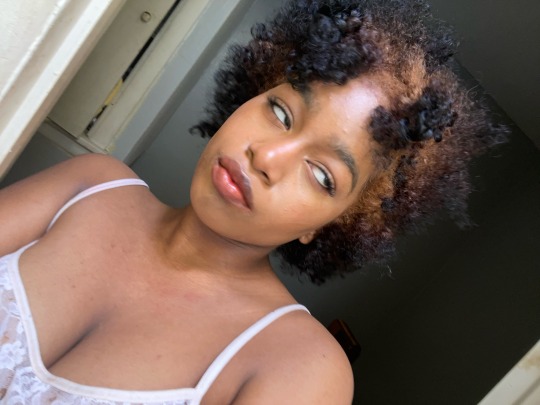
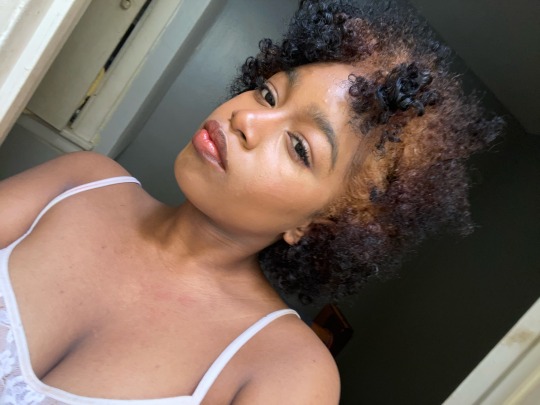
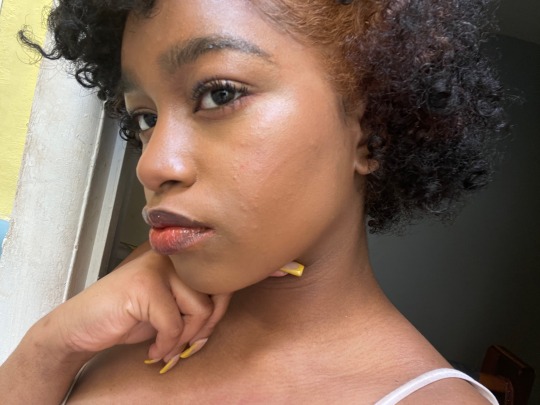
I’ve written poems about you in the asylum i call a mind …take lsd and youll find them but you wont understand
#black women#neo soul#art#writers and poets#love poetry#poet thoughts#poetic#poetscommunity#blues#poetry#dyed hair#dyed girls#black girls are beautiful#black tumblr#may all who come against black women rot#female writers#my poetry#full lips#eyes#waterfall#makeup#i love her#yoga#black beauty#beauty#beautiful#black girl magic#black is beautiful#anime#kiss of life
48 notes
·
View notes
Text
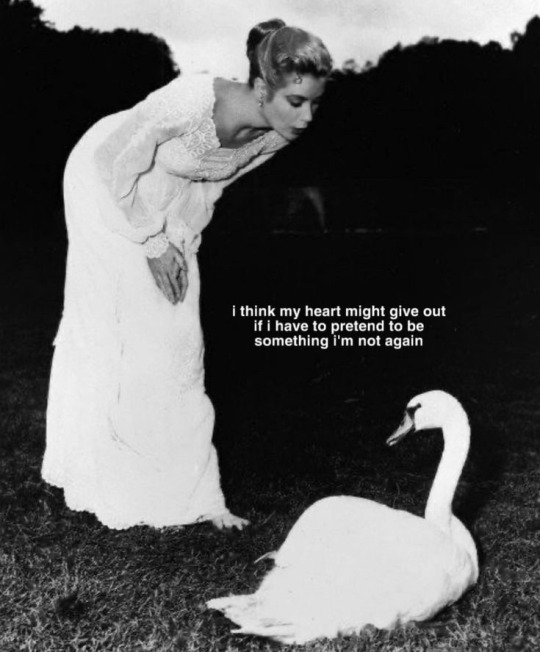
#female hysteria#girlblogging#girlhood#poems and poetry#black swan#lana del rey#girl interrupted#female manipulator#girl interupted syndrome#devine feminine#female poets#reading#lizzy grant
67 notes
·
View notes
Text
The Unofficial Black History Book
Maya Angelou (1928-2014)
Trigger Warning - This chapter mentions s*xual assault, (Placed a guideline, just in case)
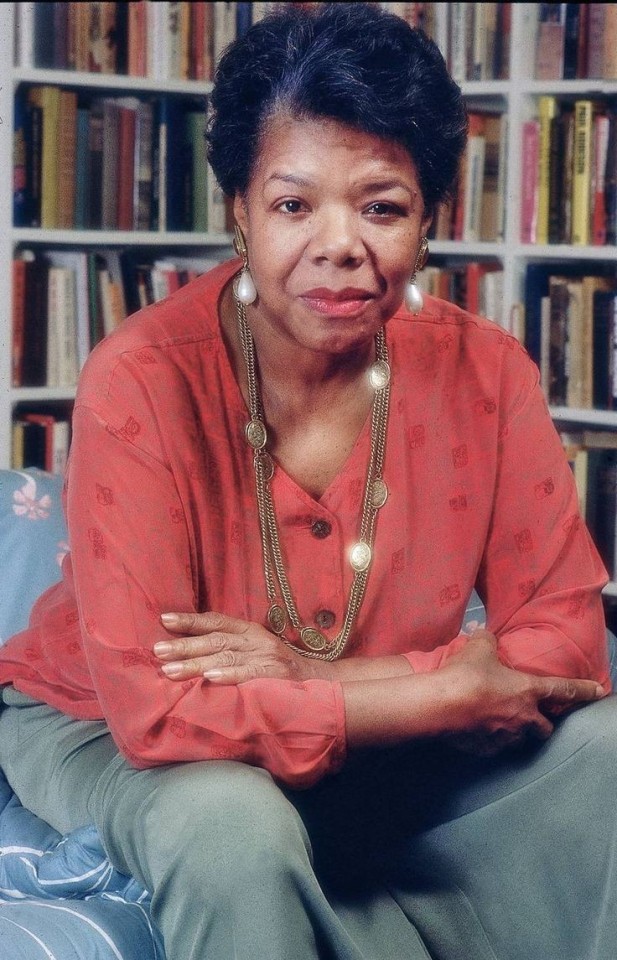

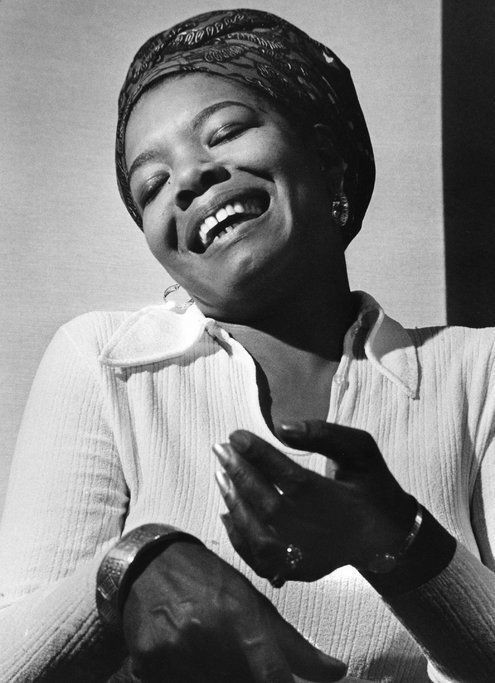
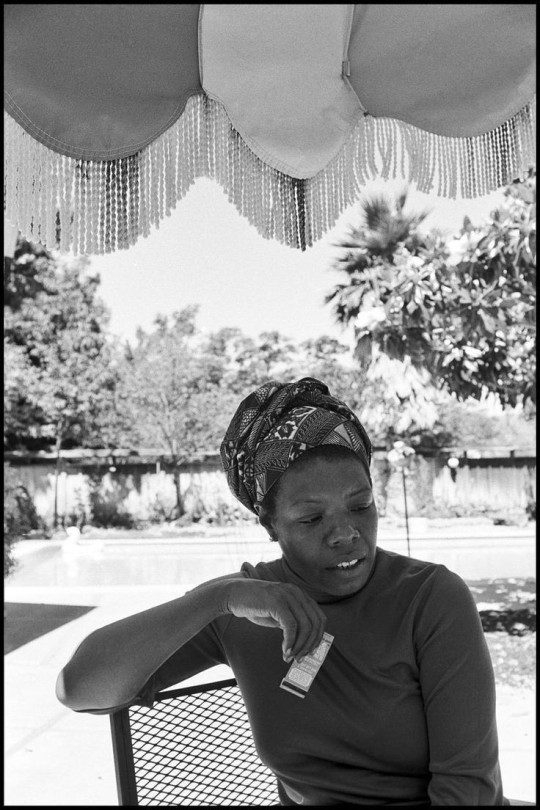
"You may not control all the events that happen to you, but you can decide not to be reduced by them." - Maya Angelou
This is her story.
Maya Angelou was not just a poet. She was an author, historian, songwriter, dancer, playwright, performer, singer, stage and screen producer, director, and Civil rights activist.
She was born Marguerite Ann Johnson on April 4, 1928, in St. Louis, Missouri. She had a difficult childhood. When her parents divorced when she was a child, she and her older brother Bailey moved to Stamps, Arkansas, to live with their grandmother, Ann Henderson. Her brother gave her the nickname "Maya," which she continued to go by.
Maya experienced firsthand racial prejudice and discrimination while she was living in Arkansas.
When she was seven, she traveled to St. Louis to see her mother and was raped by her mother's boyfriend. He was later jailed and then released.
When she spoke about the assault, her uncles banded together and killed her attacker. Traumatized and believing that her speaking about the assault caused a man's death, she became mute for almost six years and went back to live with her grandmother.
Maya has always been fascinated by the written word since she was a child. Throughout her childhood, she wrote essays and poetry and kept a journal. When she returned to Arkansas, she took an interest in poetry and memorized the works of Edgar Allan Poe and Shakespeare.
Maya moved back in with her mother, who was now living in Oakland, California, during World War II, when she was in her teens. She attended George Washington High School and received a scholarship to the California Labor School to study dance and acting.
She applied to join the Women's Army Corps during the war, but her application was denied because she had attended the California Labor School, which was rumored to have Communist ties.
Maya was only 15 years old at the time, but she was determined to find work, so she applied for a job as a streetcar conductor. With many men leaving their jobs to fight in the war, women were able to fill their positions.
Maya was initially turned down because she was a woman of color. But that did not deter her, so every day for three weeks, she requested a job application but was denied every time.
But this didn't stop her.
She eventually wore the company down, and they gave her an application. She stated on her application that she was 19 instead of 15 because she was under the legal working age. She was finally accepted for the job position and was the first African American woman to work as a streetcar conductor in San Francisco.
She was employed for at least one semester but then decided to go back to school. She graduated from Mission High School in 1944 and later gave birth to her son, Clyde Bailey 'Guy' Johnson. (He also became a poet later in his life.)
After graduation, Maya took on a bunch of odd jobs to support herself and her son. In 1949, she married Tosh Angelos, a Greek sailor who was an electrician in the US Navy. She adopted a form of his last name, "Angelou," and kept it despite their divorce in 1952.
Maya was very private about her marriages; she most likely married three times in her life.
Maya Angelou was well-known for her abilities as a singer and dancer, particularly in calypso and cabaret styles. Her performing career began in the 1950s. She was cast in a touring production of "Porgy and Bess" and later in the Off-Broadway production of "Calypso Heat Wave" (1957). She performed professionally in the United States, Europe, and North Africa.
In 1950, African American writers in New York City founded the Harlem Writers Guild to foster and support the publication of black authors.
Maya Angelou joined The Writers Guild in 1959, became involved in the Civil Rights Movement, and was the Northern Coordinator of the Southern Christian Leadership Conference, a prominent African American advocacy organization. She even organized and starred in the musical revue 'Cabaret for Freedom' as a benefit for the SCLC.
Maya appeared in an Off-Broadway production of Jean Genet's 'The Blacks' in 1961, alongside James Earl Jones, Lou Gossett Jr., and Cicely Tyson.
Angelou spent the majority of the 1960s living abroad, first in Egypt and then in Ghana. She was working as an editor and as a freelance writer. During her time at the University of Ghana, she worked as a lecturer. While in Ghana, she also joined a community of "Revolutionist Returnees", discovering Pan-Africanism.
She became close friends with Malcolm X as well. When she returned to the United States in 1964, she assisted Malcolm X in establishing the Organization of Afro-American Unity, which was later disbanded following his death the following year.
Maya and Martin Luther King Jr. were also close friends. When he was assassinated on her birthday, April 4, 1968, she stopped celebrating her birthday for years afterward. Instead, she sent flowers to Coretta Scott King, Martin's widow, for over 30 years until Coretta's death in 2006.
In 1969, Maya Angelou published 'I know why the caged bird sings', a memoir about her early life. Her friend and fellow African-American writer James Baldwin encouraged her to write her autobiography.
As the first nonfiction bestseller by an African-American woman, her story of personal strength in the face of childhood trauma and racism made literary history.
It was nominated for a National Book Award, and while many schools tried to ban it due to the vivid depiction of sexual abuse, it was credited with assisting other Sexual Abuse survivors in telling their own stories.
'I know why the caged bird sings' made Maya Angelou an international star. It's been translated into many languages, has sold over a million copies worldwide, and continues to be her most popular autobiographical work. She went on to publish six more autobiographies.
Maya published a number of poetry collections, including "Just Give Me a Drink of Water 'fore I Diiie' (1971), which was nominated for a Pulitzer Prize, as well as several essay collections. She also recorded spoken word albums of her poetry, including 'On the Pulse of the Morning,’ and won a Grammy for Best Spoken Word Album. The poem was originally written for and delivered at Bill Clinton's inauguration in 1993.
She received another Grammy in 1995 and another in 2002 for her spoken poetry albums.
With the production of 'Georgia, Georgia' in 1972, Maya became the first African-American woman to have her screenplay turned into a film. In 1973, she received a Tony nomination for her supporting role in Jerome Kitty's play, 'Look away.' In 1976, she wrote 'Singin' and swingin' and 'Gettin' Merry Like Christmas," autobiographies about her early career as a singer and actress. And played Kunta Kinte's grandmother in the TV miniseries 'Roots' in 1977.
'The Heart of a Woman,' her memoir about leaving California with her son for New York and participating in the Civil Rights Movement, was published in 1981.
In 1986, she wrote "All God's Children Need Traveling Shoes," a lyrical exploration of her years spent living in Ghana and what it means to be an African-American in Africa.
In 1994, she wrote "Wouldn't Take Nothing for My Journey Now," a collection of inspirational essays that features Maya's insights about spirituality and living well.
In 2002, she wrote 'A Song Flew Up to Heaven', an autobiographical work that explores Maya's return from Africa to the States and her struggle to cope with the assassinations of her close friends, Dr. King and Malcolm X. The book even ends when, at the encouragement of James Baldwin, she begins to work on 'I know why the caged bird sings'.
In 2008, she wrote 'Letter to My Daughter'. It was dedicated to the daughter she never had and features essays of her own advice for young women about living a life with meaning.
In 2013, she wrote 'Mom & Me & Mom', a memoir where she discusses her complicated relationship with a mother who abandoned her during childhood.
Maya also published cookbooks. Interested in health, she published. "Hallelujah! The Welcome Table: A Lifetime of Memories with Recipes" (2005). And 'Great food, all day long' (2010).
Maya Angelou was honored by numerous organizations both nationally and internationally for her contributions to literature. Wake Forest University appointed her to the Reynolds Professorship of American Studies in 1981. And in 2000, President Clinton awarded Maya Angelou the National Medal of Arts.
Maya was awarded the Presidential Medal of Freedom by President Barack Obama in 2011, the country's highest civilian honor.
In 2012, she was a member of the inaugural class inducted into the Wake Forest University Writers Hall of Fame. She received the National Book Foundation's Literary Community Award the following year. She also gave many commencement speeches and was awarded more than 30 honorary degrees in her lifetime.
On May 28th, 2014, Maya Angelou died at the age of 86 in Winston-Salem, North Carolina. In her honor, memorial services were held at Wake Forest University and Glide Memorial Church in San Francisco.
In honor of her legacy, the US Postal Service issued a stamp with her likeness on it in 2015.
President Obama issued a statement about Maya Angelou, calling her "a brilliant writer, a fierce friend, and a truly phenomenal woman. Angelou had the ability to remind us that we are all God's children and that we all have something to offer." He wrote.
In May 2021, it was announced that Maya Angelou would be one of the first women to be honored with a new series of quarters from the United States Mint.
Maya Angelou was truly a phenomenal woman.
_
Previous
Clara Hale
Next
Ruby Bridges
___
My Resources
#the unofficial black history book#black history matters#black female poets#black female writers#protect black girls#protect black children#black history is american history#black culture#black excellence#black tumblr#know your history#learn your roots#black icons#maya angelou#black poets#black writers of tumblr#black writblr#writblr#civil rights movement#black community#black women appreciation#herstory#history#black women#black poetry#black activism#writing community#black representation#social justice
1 note
·
View note
Text
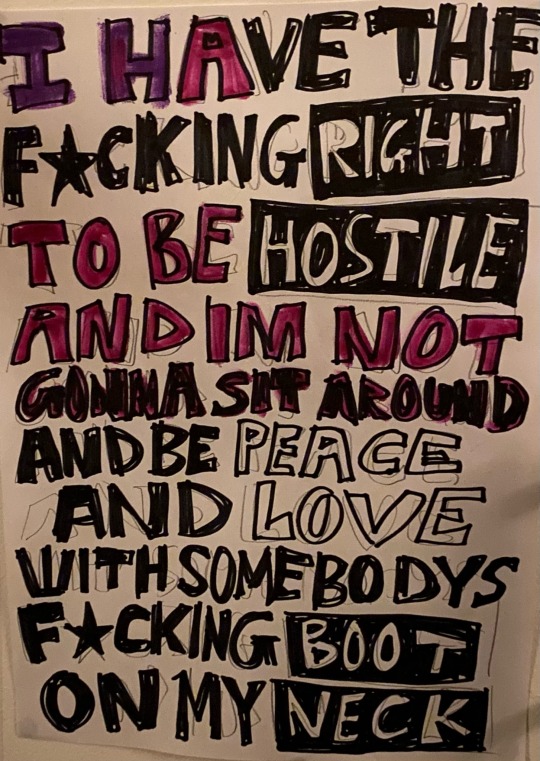
#riot#riot grrrl#punk rock#pop punk#post punk#loser girl#girlblogging#this is a girlblog#writers on tumblr#girlhood#poetry#female poets#female writers#poets on tumblr#writeblr#writers and poets#feminism#femininity#fuck the police#bikini kill#trans women are beautiful#black women are beautiful#gay women are beautiful
41 notes
·
View notes
Text
who would of thought
that life would bring us together
at the right place
at the right time
exactly when I needed you
- divine
#poems and poetry#poems and quotes#poems on tumblr#poetry#female poets#original poem#poems by me#poetscommunity#quotes#black poetry#short poems#my poems#short poem#love poem#sad poem#poem#poems#poets on tumblr#writers and poets#original poems#poemsbyme
70 notes
·
View notes
Text
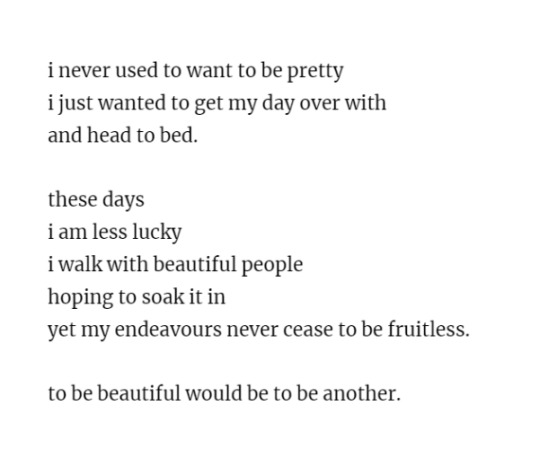
#girlblogger#poetry#writing#writer#poem#poet#short poem#poets on tumblr#poetic#original poem#poems on tumblr#i want to be a poet#girl interrupted#female hysteria#gaslight gatekeep girlboss#manic pixie dream girl#girlblog#femcel#coquette#dollette#girlblogging#girlcore#black swan#beauty#beautiful#pretty face#woman#gorgeous#im just a girl#this is a girlblog
29 notes
·
View notes
Text
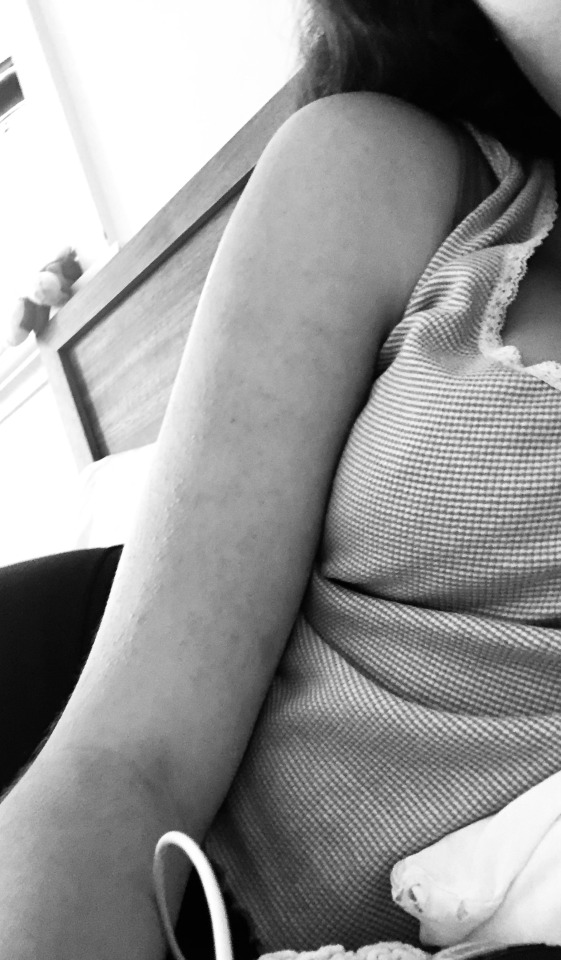
I wanted to be your woman
I wanted to be your man
I wanted to be the one that you can understand.
#vampire empire#big thief#girlblogging#hell is a teenage girl#girly blog#girlhood#girl blogger#this is what makes us girls#female hysteria#female manipulator#female rage#gaslight gatekeep girlboss#femcel#girlblog#girl interrupted#lisa rowe#daisy randone#edgar allan poe#lyric posting#lyrics#lyric quotes#black and white#mine#im eepy#tumblr poetry#dead poets society
25 notes
·
View notes
Text
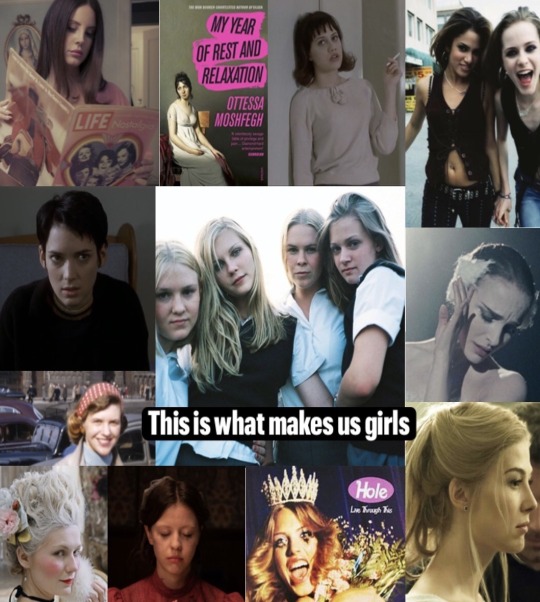
This is what makes us girls
#gaslight gatekeep girlboss#girlblogging#bring back 2012 tumblr#coquette#dark academia#girl interrupted#poets on tumblr#tumblr girls#girl blogger#gone girl#hell is a teenage girl#the virgin suicides#lisbon#black swan#maxine#lana del rey unreleased#hole#marie antoinette#female manipulator#may jailer#thirteen 2003#thirteen movie#my year of rest and relaxation#the bell jar#sylvia plath#ottessa moshfegh
55 notes
·
View notes
Text
Sometimes I miss the person I used to be. The happy, trusting, and loving girl I used to be. The person I was before I fell in love with you...
Now I am cold, bitter, and scared to ever love again.
I should have never trusted you. I should have never let you love me.
#spilled words#sad thoughts#writers on tumblr#love#poetry#i love him#i miss you#relationship#writing#love quotes#spilled ink#quotes#spilled thoughts#spilled writing#spilled poetry#write#black and white#writers#writers and poets#female writers#creative writing#writerscommunity#writeblr#writer stuff
27 notes
·
View notes
